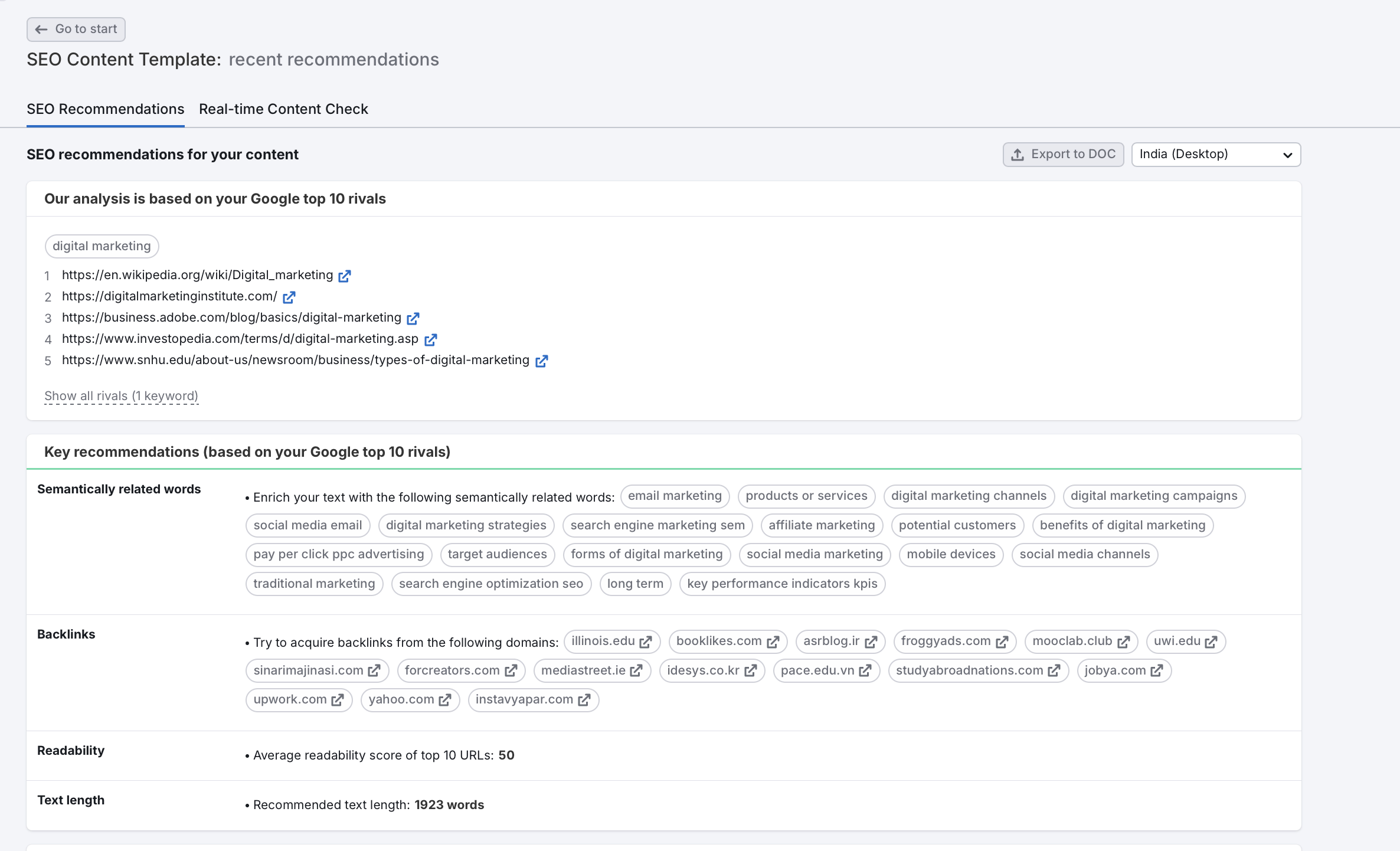Do you know that semantic keywords can help you rank on Google, get traffic, leads, and engagement from your target audience? But are you familiar with what these keywords really are? You might have heard about primary keywords, secondary keywords, long tail keywords, and more, but Semantic keywords are a little different.
Semantic keywords are phrases that connect the primary keyword or topic. They focus on aligning your content with the search intent and making sure that users get what they are searching for. Here, we will learn how we can use and optimize these keywords for our brands or businesses.
What Are Semantic Keywords?
Semantic keywords are phrases that tell Google Search Engine about the intent and context of a particular topic. These keywords can help you boost your content relevance with the search queries.
- Semantic keywords are phrases that align with the main target or focus keywords of the content on the webpage.
- Finding and using appropriate semantically aligned keywords is important, along with other types of social media content, for proper SEO and optimised content.
- Semantic keywords are used in an SEO strategy to optimize the use of semantic phrases or terms to get better lead conversion and rankings.
- With these keywords, you offer a helping hand to the Google crawler to understand and improve the intent, relevance, and visibility on the search engine.
For example, Keywords like “Mediation”, “flexibility”, “asanas”, “mindfulness”, “breathing exercises”, “wellness” are semantically and conceptually related to “Yoga”. Using semantic keywords this way can help your content get richer and signal to Google that the topic is relevant to search queries.
Why Are Semantic Keywords Important?
Semantic keywords are phrases that relate to he overall subject and intent of content on a webpage. It does not focus on making exact matches, but its objective is to make the search engine understand the context behind the topics. When you consider including these keywords in your content, then you can make your content releavnt to many search queries on Google. Let us check some of the major importance of these keywords in SEO.
These keywords help you improve search engine understanding, as search engines are now using Natural Language Processing (NLP) to analyse content, and only targeting keywords like Primary keyword, secondary keyword, and more might not help you rank on Google.
You will be able to cover intent more accurately by not necessarily using the exact primary keywords or secondary keywords again and again. Whereas, you can use related semantic keywords, such as “mediation center in Noida” is relevant to something known as “Yoga”, and can help you get visible for relevant search queries on the internet.
Why Use Semantic Keywords In SEO?
Semantic Keywords In SEO can convey search engine the matter, subject, or topic of the content on the website. When Google parses your webpage and notices relevant semantic keywords, it prioritizes your content for indexing and ranking due to the valuable information your site contains on the topic.
As Google now has the power of Natural Language Processing (NLP), it makes Google capable of using semantic search instead of keyword-based search for the SERPs. As semantic-based searches ensure more relevance and a positive experience for users. Unlike earlier days, Google not only looks for keywords or search terms in the content but also tries to match the meaning behind the search query and relate it to the content on the internet. There can be either of two cases from here.
- Google crawls your page and finds that the content covered is relevant to the search query.
- Google crawls your page and does not index it, as it might not find valuable content inside your content. You can still make improvements and “Request Indexing” again.
How to Find Semantic Keywords On SEMrush?
Semantic keywords for each content depend on the topic, niche, or subject of the site or webpage. With a semantic keyword, you can make relevant and highly informative content easy for search engines to understand.
1. Go to SEO Content Template

You have to find the SEO Content Template tab on the Semrush dashboard, where you can analyse the top 10 results from the Google Search Result Pages with a list of semantically related keywords for a given topic or focus keyword.
2. Take Recommendation from SEO Writing Assistant

Semrush can analyse the content you covered and suggest to you auto-generated recommendations which you can add to your content. You can add these semantic keywords to your content for the webpage.
3. List Semantic Keywords

After collecting semantic keywords, you can make a list and use AI agent tools or frame a meaningful paragraph, sentence, or heading using these keywords. Make sure you do not overstuff these keywords and ensure they deliver the meaning they are intended to provide.
How to Use ChatGPT for Searching Semantic Keywords?
You can use ChatGPT to search for getting recommendations on semantic keywords. Check simple prompts you can use to add these keywords.
1. Pick your Content
If you have already prepared content, you can pick the content, copy it, and paste it into the ChatGPT prompt space.
2. Fill the Prompts

You can check the prompt below to let ChatGPT analyse your content and recommend semantic keywords for your webpage based on the topic or subject.
I will paste the complete blog content. Carefully read the entire text and extract contextually relevant and SEO-friendly semantic keywords. Provide results as clean bullet lists grouped into:
Include related entities, phrases, LSI terms, and likely search queries; avoid merely repeating the primary keywords. |
3. List the Semantic Keywords
ChatGPT will provide you with semantically aligned keywords in different formats i,e. primary semantic keywords, related, synonym, and variations. You can use these suggestions in your content to optimize your content and increase the chances of ranking on Google, getting more traffic, and even more conversions.
What Happens With Poor Optimization For Semantic Keywords?
When sites do not optimize their search bar so that it can relate a search query semantically, then it leads to an increase in the dropout rate of users. Suppose a user searched for “best quality speakers” on an e-commerce application. He found out that there is no answer for this search result.
This probably occurred as the site was not optimized for semantic keywords, and it was hoping that users would search for “Quality speakers,” and hence it failed for another search query. Users might quickly abandon the application. As per Google Survey, 80% or more users head out in case of a bad user experience on the application, like these.
- Semantic keyword optimization is important for Google Search Success.
- You can reach a wider audience and get top rankings in SERPs
- These keywords delivery good user experience throughout
Semantic keyword In SEO FAQs
Q1. What are semantic Keywords?
Ans: Semantic keywords are phrases that align with the main target or focus keywords of the content on the webpage. You can use these keywords to help Google understand the topic or subject of the content you are covering in relation to the search query on the internet.
Q2. Which is the best tool for searching semantic keywords?
Ans: You can use tools like SEMrush, Ahrefs, ChatGPT, and other AI-powered SEO tools to get your semantic keywords game strong.
Q3. Are semantic keywords important for SEO?
Ans: Semantic keywords are very much important for SEO as it help Google understand the relevance of content with the search query. It helps cite your content on AI overviews and even rank on SERPs.
Q4. Can I use ChatGPT to make keyword research?
Ans: You can take ChatGPT's help to make keyword research, including finding primary keywords, analyzing competitors, secondary keywords, semantic keywords, and more. However, ChatGPT still has many shortcomings when it comes to providing accurate data information.


